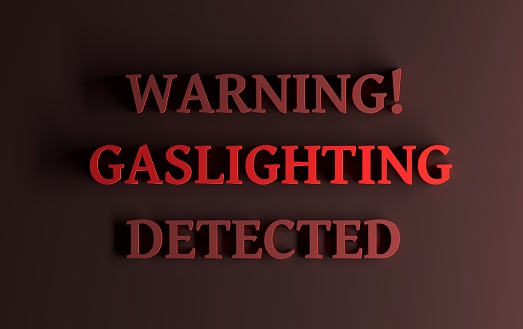Empowering Your Journey to Recovery
The Dopamine Trap: Overexercise, ADHD, and Finding Balance in Recovery
Discover a compassionate space where your path to recovery is supported with empathy and expertise. Embrace a new chapter of wellness and self-trust.
The Significance of Mental Health
Understanding Recovery from Eating Disorders
We often hear about dopamine as if it were some feel-good fairy dust. The truth? It’s far more complicated, especially when you’re neurodivergent or in recovery from an eating disorder. For many of us, dopamine becomes an emotional currency, representing reward, relief, punishment, and power. This blog explores what happens when we unknowingly chase dopamine through overexercising, perfectionism, or punishment, and how to gently shift toward healthier sources that truly nourish the body and soul.
The Ripple Effect of Eating Disorders
Understanding the Dopamine Loop
For people with ADHD, trauma backgrounds, or restrictive eating disorders, the brain often seeks quick, high-impact dopamine hits. These can come from:
-
Cardio exercise
-
Shopping, scrolling, or overworking
-
Emotional drama or perfectionism
These dopamine surges can feel like “achievement,” “discipline,” or “control”, but in truth, they often mask exhaustion, depletion, and shame.
“You’re not broken. Your brain is trying to regulate, and it’s clinging to what feels rewarding even when it hurts.”
Exploring Therapy's Role
The Healing Power of Therapy in Recovery
Compassionate Support
When Exercise Becomes a Fix
This chemical cocktail creates:
-
Energy surges (that feel productive)
-
Restlessness or guilt on rest days
-
Panic about weight gain or failure
But long-term, it also leads to:
-
Hip and back pain
-
Hormonal disruption
-
Bone density issues
You don’t need to earn your rest. If your nervous system is stuck in survival mode, slowing down feels terrifying, but that’s where healing begins.
Tailored Recovery Tools
ADHD and Dopamine Addiction
ADHD brains thrive on dopamine. That’s why so many people with undiagnosed ADHD find themselves trapped in cycles of:
-
Punishment/reward eating
-
Binge/restrict patterns
-
Relationship drama
-
Overtraining followed by injury
One speaker said, “If I don’t have purpose, I don’t get dopamine.” That’s why part of ADHD and eating disorder recovery involves structured joy, things that give you dopamine without wrecking your nervous system.
Reconnecting with Inner Trust
Toxic vs. Healthy Dopamine
🛑 Toxic dopamine traps
-
Overexercise
-
Restriction/bingeing
-
Doomscrolling
-
Shopping to self-soothe
-
Toxic relationships
-
Alcohol or weed dependency
✅ Healthy dopamine swaps
-
Nature walks
-
Hiking trips
-
CrossFit or strength training (with boundaries)
-
Meal planning with variety
-
Creative hobbies or learning something new
-
Planning future adventures
-
Slow mornings with music, candles, or journaling
Navigating Recovery with Neurodiversity
For Those Who Can’t Stop
Telling someone in the grip of exercise addiction to “just stop” is rarely helpful.
➔ Acknowledge the addiction without shame
➔ Compromise with gradual reduction (e.g. from 10k to 8k to a walk)
➔ Engage the thinking brain when the emotional brain is dysregulated
This works especially well with accountability, having someone to walk with, talk to, or check in after you choose rest.
“If you keep being cruel to your body, it will break down. And being horrible to yourself? That’s a dopamine hit too, but it’s not one you deserve.”
The Significance of Mental Health
What’s Beneath the Overexercise
For many of us, underneath the obsession with movement is:
-
Fear of fatness or being out of control
-
Shame from childhood
-
A perfectionist belief system wired in school or family life
-
Fear that resting = failure
The irony? Most of us didn’t feel authentically happy during those “disciplined” years anyway. One speaker said:
“That wasn’t happiness. I thought it was, but I wasn’t even really present. I was just in a trance.”
What Recovery Actually Looks Like
For Those Who Can’t Stop
Recovery doesn’t mean giving up on achieving your goals. It means redirecting it:
Setting new goals that align with your actual values
Nourishing your body so you can think clearly
Learning that rest isn’t weakness.
Finding joy that doesn’t come with shame attached
Whether you’re neurodivergent, in recovery, or just exhausted by overachievement, dopamine isn’t the enemy. But how do you get it… That’s where your power lies.
Becky Stone
I’m Becky Stone, a qualified eating disorder therapist based in the UK. I work with both teens and adults, offering a calm and non-judgmental space to explore what recovery truly means, on your terms. My work is shaped by both professional training and lived experience, especially supporting neurodivergent clients with ADHD and autism. I believe in flexible, shame-free recovery, and I’m here to help you find healthier ways to feel good in your body.
Stay Connected with Our Blog
If you found this blog helpful, I share honest, trauma-informed insights every single week on recovery, self-worth, and what it means to feel good in your skin.
➔ Sign up here to get weekly support straight to your inbox
No spam. Just words that lift you up.







